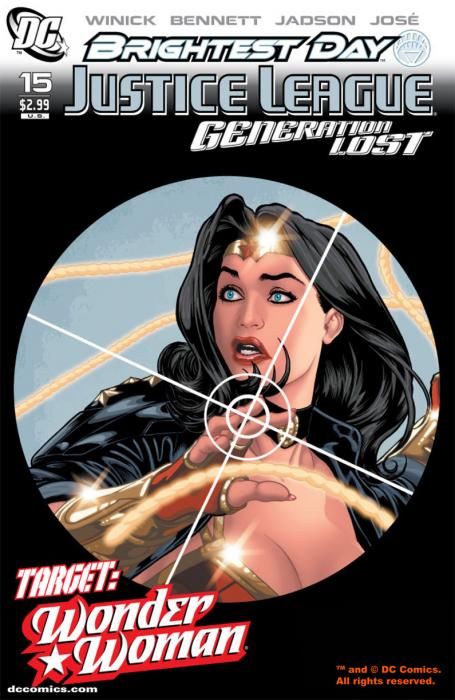Max Lord's gigantic hoodwink on the world takes a turn right back against Max, just like spitting into the wind. It's a twist to the story I didn't see coming, but given events in the DC Universe of late, it makes complete sense. Max recognizes it, and says, "I guess there's irony in this." Oh, there's irony. There's also hope, but more than anything in this issue, there's lots and lots of teeth-gnashing. Max is angered by the irony, Booster Gold is ticked off about Max, and Captain Atom is distraught about being framed for the murder of Magog. Winick is setting up the characters in this book for an angst-powered, emotion-filled visceral explosion. At least, it sure seems that way at this point.
On the character development side of things, Fire and Ice have a heart-to-heart about what it means to be a hero. It's the type of quiet comic book moment that can only come before a tragedy. Naturally, and somewhat predictably, that's when the action picks up. Winick sneaks in a few surprises to make the action seem less predictable.
Bennett's pencils serve the purpose here, bringing detailed, geometry powered art to this story. The geometry comes in the form of harsh shadows, squared edges, and simple shapes filling the background, propelling the characters forward. The bright, lush coloring in this book plays well off of the shadows and helps the heroes feel more heroic, the villains feel more threatening and the calamities more garishly alarming.
"Generation Lost" is a series that has frustrated me with its deceptively simple plot. The story, in my opinion, should have had a quick resolution one way or another, but Winick has made good work of dropping in some surprises, subsequently bending up what should be a prescribed straight and narrow plot. Now, with the tables turned, Lord is pulling out all the stops, and this story is going off the path into the wildflowers. What happens from here is going to change some of these characters permanently.

